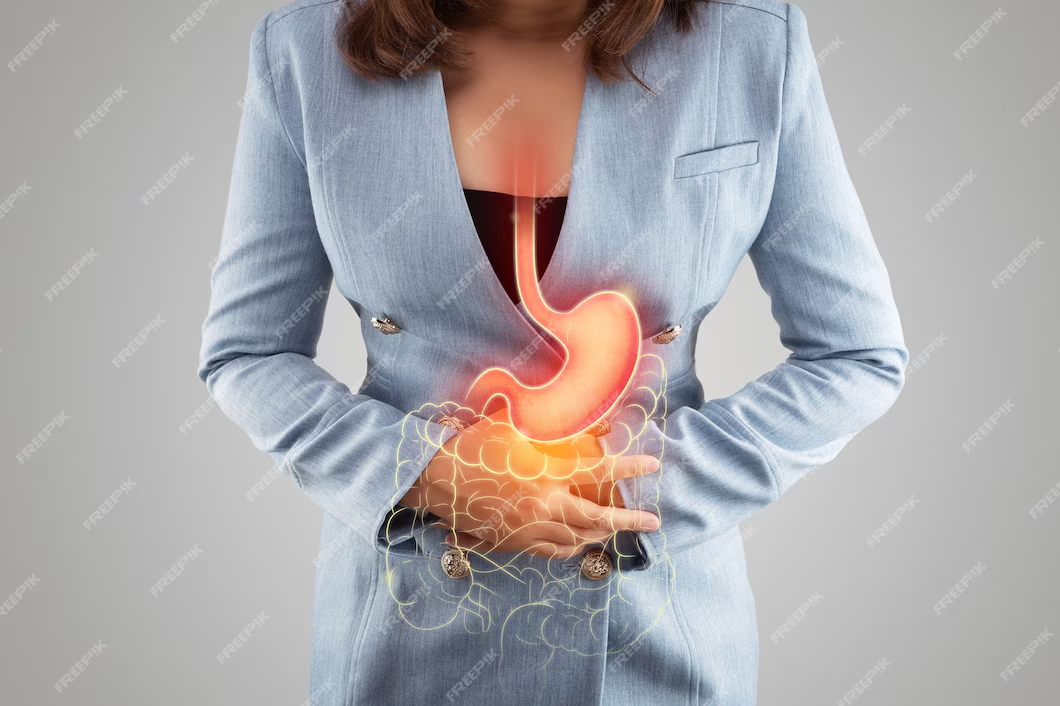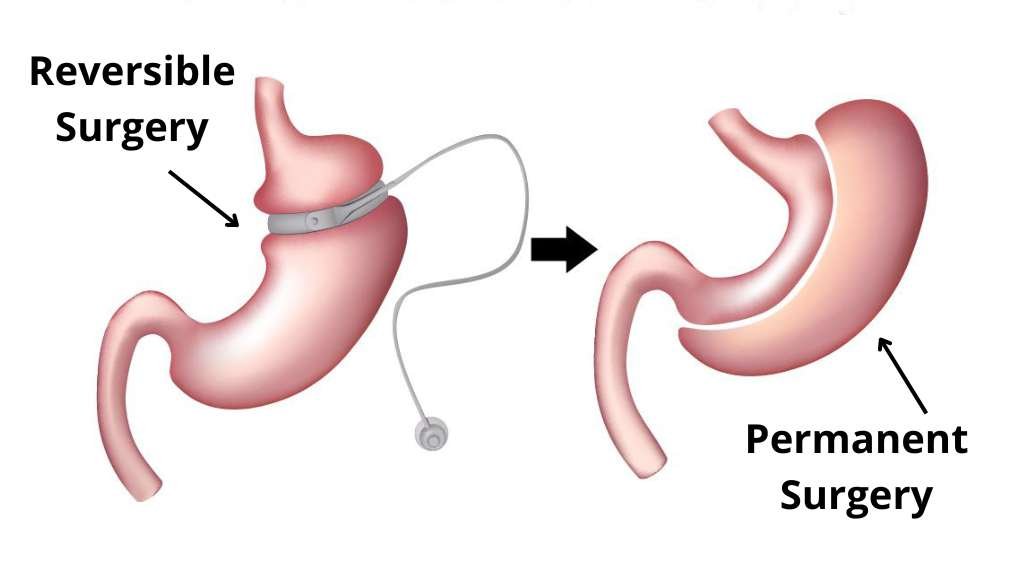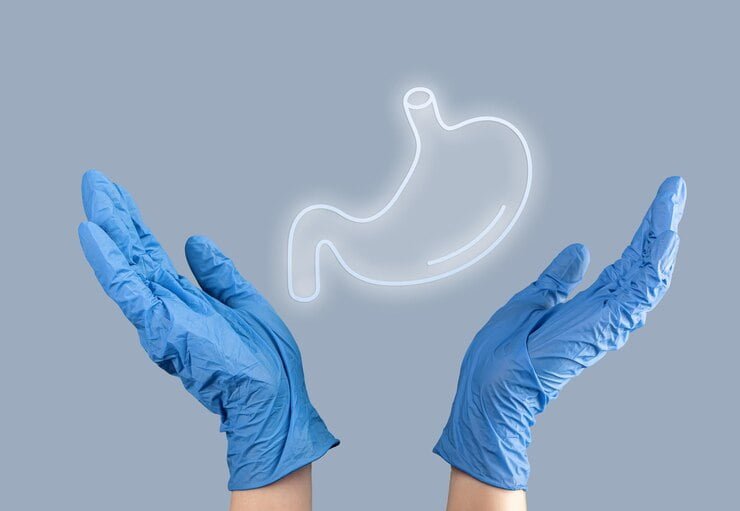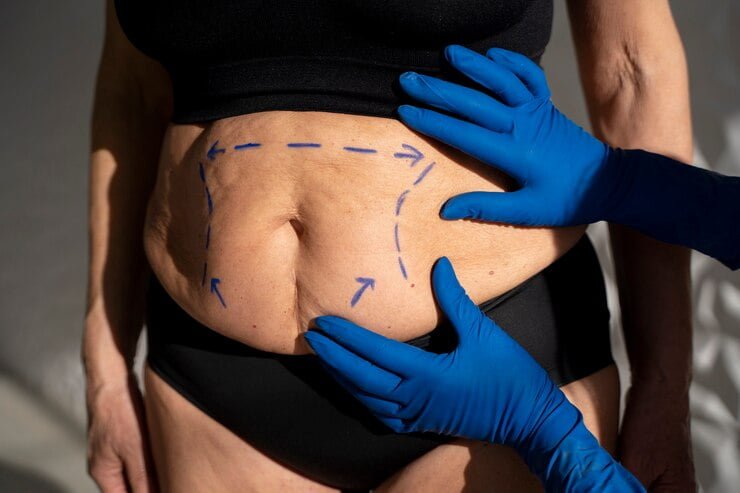Gastric sleeve surgery, also known as sleeve gastrectomy, is a popular weight-loss procedure that reduces the size of the stomach. While this surgery can be life-changing, helping individuals achieve significant weight loss and improve their overall health, it can also lead to certain post-operative complications. One common issue faced by many patients is constipation. In this article, we will explore the causes, symptoms, and effective remedies for constipation after gastric sleeve surgery.
Causes of Constipation After Gastric Sleeve Surgery
Reduced Food Intake
After gastric sleeve surgery, the stomach’s capacity is significantly reduced, leading to lower food intake. This can result in less dietary fiber being consumed, which is crucial for maintaining regular bowel movements.
Dehydration
Patients are often advised to drink plenty of fluids post-surgery, but the smaller stomach size can make it challenging to consume adequate amounts. Dehydration can lead to hard stools and constipation.
Pain Medications
Post-operative pain management often involves the use of narcotic pain medications. These medications can slow down the digestive system, leading to constipation.
Iron Supplements
Iron supplements, commonly prescribed after gastric sleeve surgery to prevent anemia, can cause constipation as a side effect.
Reduced Physical Activity
Initially, patients may have limited mobility post-surgery, reducing physical activity which can slow down the digestive system and lead to constipation.
Symptoms of Constipation After Gastric Sleeve Surgery
- Infrequent bowel movements (less than three times a week)
- Hard, dry, or lumpy stools
- Difficulty or straining during bowel movements
- A feeling of incomplete evacuation
- Abdominal pain or discomfort
- Bloating and gas
Effective Remedies for Constipation After Gastric Sleeve Surgery
Increase Fiber Intake
Gradually increasing fiber intake can help alleviate constipation. Incorporate fiber-rich foods such as fruits, vegetables, whole grains, and legumes into your diet. Consider fiber supplements if necessary, but consult your healthcare provider first.
Stay Hydrated
Drinking plenty of water is essential. Aim for at least 8-10 cups of water daily. Herbal teas and clear broths can also help maintain hydration.
Physical Activity
Gentle exercises such as walking can stimulate the digestive system and help relieve constipation. Gradually increase your activity level as you recover.
Over-the-Counter Remedies
If natural methods are not effective, over-the-counter stool softeners or mild laxatives can be used. However, these should only be used under the guidance of your healthcare provider.
Probiotics
Probiotics can promote a healthy gut flora and improve digestion. Yogurt, kefir, and probiotic supplements can be beneficial.
Monitor Your Medications
Speak with your healthcare provider about the medications you’re taking. They may be able to adjust your pain management plan or recommend alternatives to iron supplements that are less likely to cause constipation.
Regular Eating Schedule
Eating small, frequent meals can help maintain regular bowel movements. Avoid skipping meals, as this can disrupt your digestive system.
When to Seek Medical Help
While constipation is common after gastric sleeve surgery, it’s important to know when to seek medical help. If you experience severe abdominal pain, persistent vomiting, inability to pass gas or stool, or if constipation persists despite trying the above remedies, contact your healthcare provider. These symptoms could indicate a more serious condition requiring medical attention.
Long-Term Management and Prevention
To prevent constipation in the long term after gastric sleeve surgery, it is essential to adopt a holistic approach that includes dietary modifications, hydration, and physical activity.
Dietary Modifications
Incorporate a balanced diet rich in dietary fiber, which is crucial for maintaining regular bowel movements. Foods such as fruits, vegetables, whole grains, and legumes are excellent sources of fiber. Gradually increase your fiber intake to avoid bloating and gas, aiming for at least 25-30 grams of fiber per day. Including prebiotic and probiotic foods, such as yogurt, kefir, sauerkraut, and other fermented foods, can also help maintain a healthy gut microbiome, which is essential for digestive health.
Hydration
Staying hydrated is equally important. Aim to drink at least 8-10 cups of water daily, as adequate fluid intake helps soften stools and promotes regular bowel movements. In addition to water, herbal teas and clear broths can contribute to your fluid intake. Avoid excessive consumption of caffeinated or alcoholic beverages, as they can lead to dehydration.
Physical Activity
Regular physical activity stimulates the digestive system and can help prevent constipation. Engage in moderate exercise, such as walking, swimming, or yoga, for at least 30 minutes a day, five days a week. Physical activity not only aids digestion but also supports overall weight management and well-being.
Follow-Up Appointments
Regular follow-up appointments with your healthcare provider are crucial for long-term management. These visits allow your provider to monitor your progress, address any ongoing issues, and adjust your dietary and activity recommendations as needed. Your healthcare provider can also advise on the use of fiber supplements or other medications if natural methods are insufficient.
Lifestyle Adjustments
Adopting a regular eating schedule and avoiding skipping meals can help maintain a consistent digestive rhythm. Eat smaller, more frequent meals throughout the day to avoid overwhelming your reduced stomach capacity. Additionally, paying attention to your body’s signals and responding promptly to the urge to have a bowel movement can prevent constipation from becoming severe.
Conclusion
Constipation after gastric sleeve surgery is a common but manageable condition. Understanding the causes and symptoms can help you take proactive steps to prevent and alleviate constipation. By incorporating dietary changes, staying hydrated, engaging in physical activity, and consulting with your healthcare provider, you can improve your post-surgery recovery and maintain a healthy digestive system. Remember, each individual’s response to surgery and recovery can vary, so it’s important to find the remedies that work best for you.
If you’re experiencing constipation after gastric sleeve surgery, don’t hesitate to reach out to your healthcare provider for personalized advice and support. Your health and well-being are paramount, and managing post-operative complications effectively is key to achieving long-term success on your weight-loss journey.
If you are experiencing constipation after gastric sleeve surgery or have any concerns about your post-operative recovery, the expert team at TurkeyObesity is here to help. Our experienced healthcare professionals provide personalized support and comprehensive care to ensure you achieve your health and wellness goals. For more information, guidance, or to schedule a consultation, visit our website at TurkeyObesity or contact us directly. Your journey to better health starts with us.
Frequently Asked Questions (FAQs)
What helps constipation after gastric sleeve?
Increasing fiber intake, staying hydrated, engaging in physical activity, and using over-the-counter stool softeners can help alleviate constipation after gastric sleeve surgery.
How to avoid constipation after gastric sleeve?
To avoid constipation, consume a fiber-rich diet, drink plenty of water, exercise regularly, and follow your surgeon’s dietary guidelines.
How to relieve constipation after gastric sleeve?
Relieve constipation by eating fiber-rich foods, drinking ample water, taking gentle laxatives if needed, and staying active.
How to stop constipation after gastric sleeve?
Stop constipation by increasing your dietary fiber, staying well-hydrated, using stool softeners if necessary, and maintaining regular physical activity.
How to treat constipation after gastric sleeve?
Treat constipation with a combination of dietary changes (more fiber), adequate hydration, mild laxatives, and regular exercise.
What can I take for constipation after gastric sleeve?
You can take fiber supplements, stool softeners, mild laxatives, and probiotics to help with constipation after gastric sleeve surgery.
What can I take for constipation after gastric sleeve surgery?
For constipation after gastric sleeve surgery, consider fiber supplements, stool softeners, gentle laxatives, and consult your healthcare provider for personalized advice.
What to take for constipation after gastric sleeve?
Take fiber supplements, stay hydrated, use stool softeners or mild laxatives, and ensure adequate physical activity to relieve constipation.
Why am I constipated after gastric sleeve?
Constipation after gastric sleeve surgery can be due to reduced food intake, dehydration, use of pain medications, iron supplements, and decreased physical activity.
What to take for constipation after gastric sleeve surgery?
For constipation after surgery, take fiber supplements, drink plenty of water, use over-the-counter stool softeners or laxatives, and consult your doctor.
How to deal with constipation after gastric sleeve?
Deal with constipation by increasing fiber intake, drinking more water, staying active, and using stool softeners or mild laxatives if needed.
How to deal with constipation after gastric sleeve surgery?
Address constipation post-surgery with a fiber-rich diet, adequate hydration, physical activity, and over-the-counter remedies if necessary.
How to relieve constipation after gastric sleeve surgery?
Relieve constipation after surgery by eating more fiber, drinking enough water, staying physically active, and using stool softeners or laxatives.
Is constipation normal after gastric sleeve surgery?
Yes, constipation is a common issue after gastric sleeve surgery due to changes in diet, hydration, and medication.
What can you take for constipation after gas?
For constipation after gas, consider taking fiber supplements, stool softeners, mild laxatives, and drink plenty of fluids.
What causes constipation after gastric sleeve surgery?
Constipation after gastric sleeve surgery is caused by reduced food intake, dehydration, pain medications, iron supplements, and reduced physical activity.
What to use for constipation after gastric sleeve surgery?
Use fiber supplements, drink plenty of water, take stool softeners or mild laxatives, and engage in regular physical activity to alleviate constipation.
Why is there constipation after gastric sleeve?
Constipation occurs after gastric sleeve surgery due to a smaller stomach size leading to reduced food and fiber intake, dehydration, medication effects, and less physical activity.













